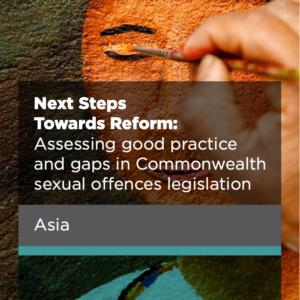Malaysia, a federation of 13 states and three federal territories, has a federal Penal Code 1936 (PC) (as amended) containing sexual offences laws. Although the states are empowered to enact legislation on criminal offences under Islamic law, and many have done so, these are not assessed here. This research reviews only the federal Penal Code. The Sexual Offences Against Children Act 2017 (SOCA) contains a contemporary framework of child sexual assault offences. The Evidence Act 1950 contains the rules of evidence that pertain to sexual offences.
Many provisions in the SOCA that are evaluated in this research meet good practice standards for child sexual assault offences. For example, the Act criminalises a range of gender-neutral child sexual assault offences, including sexual communication with a child, grooming, physical sexual assault of a child, non-physical sexual assault of a child and abuse or breach of trust to sexually exploit a child. The law expressly states that no child sexual assault offence requires corroboration. The age of consent is 18 for males and females for opposite-sex sexual activity. However, SOCA does not provide a close-in-age defence, which is a critical element in good practice child sexual assault law. These defences prevent criminalising genuinely consensual sexual activity between young people of a similar age when one or both of them is under the age of consent.
The sexual offences laws of Malaysia do not comprehensively address adult sexual violence and some of the laws assessed do not meet good practice standards. Non-consensual penetration offences include rape, sexual connection and penetration by objects. Penetration of a vagina or anus by body parts other than a penis are not expressly criminalised. The law does not define consent to sexual activity as free and voluntary agreement by a person; does not specify that evidence of resistance to the assault, such as physical injuries to the body, is not necessary to prove that sexual activity took place without consent; or that evidence of a complainant’s prior sexual conduct is inadmissible.
The availability under the Penal Code of a marital rape defence in most circumstances does not meet standards of good practice. Marital rape is only a crime if the parties are judicially separated, there is an injunction restraining the husband from sexual intercourse with his wife, or during the period of ‘iddah’ if the victim/survivor is a Muslim woman living separately from her husband. The offence of ‘husband causing hurt to have sexual intercourse with his wife’ is inadequate. Non-consensual sexual intercourse should be expressly criminalised in the legislation in every circumstance without exception. Not criminalising marital rape or providing for a defence of marriage to rape is discriminatory on the grounds of sex and marital status, violates other rights and is contrary to good practice standards.
Malaysia also criminalises consensual sexual activity that involves anal or oral penetration between opposite-sex and same-sex persons and uses language that is discriminatory and stigmatising to describe such activity, such as ‘carnal intercourse against the order of nature’. Although these offences apply to any person, these sexual acts are more commonly associated with male same-sex sexual activity. Laws that criminalise consensual same-sex sexual activity should be repealed and all non-consensual sexual acts, including anal ‘rape’, should be included in the standard sexual assault provisions, such as ‘rape’ and ‘sexual assault’, as well as in child sexual offences. All of these crimes should be gender-neutral.
Malaysia is a state party to some relevant international human rights treaties, including the Convention on the Rights of the Child, Convention on the Rights of Persons with Disabilities and the Convention on the Elimination of All Forms of Discrimination against Women. It is not a party to the International Covenant on Civil and Political Rights or the Convention against Torture and Other Cruel, Inhuman or Degrading Treatment or Punishment.
Read more about the criminalisation of LGBT people in Malaysia.
The full assessment of Malaysia is available here.



